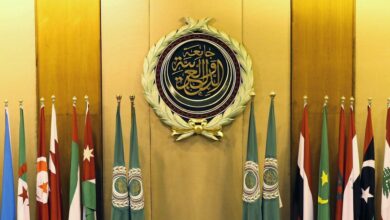Taliban: how victory in Afghanistan has fueled the Taliban in Pakistan

Israr, 17, was fast asleep when his phone rang. He says it is a phone call that he “will never forget for the rest of his life.”
It was 2 am and the teenager was exhausted. He had been working all day as a guard.
At the other end of the line was his brother, who told Israr that men broke into his family’s home, dragged his father outside and shot him dead.
“He asked me to run home,” recalls Israr, whose name has been changed for security reasons.
I met Israr in Orakzai, one of the seven districts of the tribal belt of Pakistan.
Like the provinces just across the border in Afghanistan, Orakzai is home to a predominantly Pashtun population.
Three days after the death of Israr’s father, a branch of the extremist Islamic State organization, known as Islamic State Khorasan Province (IS-K), claimed responsibility for the murder.
IS-K accused Israr’s father of being a Pakistani military informant, a claim rejected by Israr.
“My father just had a shop in Orakzai. He helped his tribe, especially people who were returning to the area after being displaced due to the war, ”says Israr.
“He had no enemies. He was one of the elders in the area ”.
In Afghanistan, the Taliban and IS-K are waging a bloody war for supremacy.
Here in Pakistan the picture is murkier.
Increase in violence
The attack on Israr’s father was not unique. On the same day, another man was shot dead in Orakzai, also for allegedly being an “informant” for the Pakistani army.
IS-K also claimed responsibility for that attack.
Orakzai is one of seven tribal areas including Bajaur, Mohmand, Khyber, Kurram, North Waziristan, and South Waziristan, which were previously governed by British colonial-era law.
It was only in May 2018 that they merged with the Khyber Pakhtunkhwa province and became districts, incorporating them into Pakistani civil life.
This year there have been an increase in violence, according to data compiled by the Pakistan Institute of Peace Studies (PIPS), an Islamabad-based research organization.

Tehrik-i-Taliban Pakistan (TTP), the “ideological twin” of the Afghan Taliban, is the main responsible for that situation.
TTP wants to follow in the footsteps of its Afghan counterparts and establish its understanding of sharia, a hard-line Islamic form of government, in Pakistan.
According to PIPS data, the TTP carried out 95 attacks in Pakistan last year, killing 140 people, and committed 44 attacks in the first six months of this year.
As the Afghan Taliban made rapid progress in Afghanistan and began to gain control of several provinces starting last July, the TTP increased its activity.
From July to September, the group carried out another 44 attacks and claimed 73 lives. The dead were mostly members of the Pakistani law enforcement agencies.
Threats and intimidation
And beyond the open violence, the region has been seething for months with threats and tensions.
Some residents say they have received calls from Afghan and Pakistani numbers demanding extortion money.
Ahmed, not his real name, he is a social worker and businessman from the Bajaur district. He told the BBC that he continued to receive calls from different numbers in July and August.

The men presented themselves as belonging to the Taliban and demanded money.
“They were asking for extortion money,” Ahmed said. “And despite my refusal, they continued to send me voice notes and messages on WhatsApp, threatening that if I did not pay they would harm me and my family.”
Ahmed said that he contacted the district administration and presented evidence to civilian and military authorities.
“I repeatedly informed them about this, but the administration told me that I am not the only person receiving these calls, and many others have received the same threats here in Bajaur.
“They told me that it is impossible to provide security for everyone, and that I myself must take precautions and install security cameras in my house.”
Who are the TTPs?
The TTP was founded by Baitullá Mehsud in South Waziristan in late 2007.
The militant movement was formed in response to a Pakistani military operation that cleared the Lal Masjid mosque in Islamabad, where a radical preacher ruled.
Was once considered close to Pakistan’s intelligence agency, the ISI.
According to Amira Jadoon, an assistant professor at the United States Military Academy at West Point, the ties between the Afghan and Pakistani Taliban date back to 9/11. [de 2001, fecha de los ataques contra las Torres Gemelas y el Pentágono] and the fall of the first Taliban government in Afghanistan in 2001.
Analysts say that after the US-led invasion of Afghanistan, Pakistani Taliban leaders fought alongside the Afghan Taliban, providing food, shelter and financial aid to the Afghan Taliban in Pakistan’s tribal areas, and also pledging loyalty to them. .
But, after its formation, the TTP attacked the Pakistani state, targeting both civilians and security forces.
The Pakistani military retaliated and pushed the TTP leaders into Afghanistan, where it has been based since 2015, waging a “low intensity” war against Pakistan.
When the Afghan Taliban began their march on Kabul last July, the TTP became more visible.
The head of the Pakistani Taliban, Noor Wali Mehsud, told CNN that the victory of the Afghan Taliban would be a “victory for all the Muslim people.”
Also had a warning for pakistan.
“Our fight is only in Pakistan, where we are at war with the Pakistani security forces,” he declared.
“We hope to take control of the tribal border region of Pakistan and make them independent.”

Abdul Basit, a Singapore-based terrorism scholar, believes that the Afghan Taliban’s victory “definitely spurred” the TTP.
“They feel that if the United States lost in Afghanistan, what can Pakistan do,” he said.
“Furthermore, they have been stoking ethnic tensions and playing on local grievances … essentially, the TTP is trying to exploit Pashtun victimization.”
But, according to former Pakistani national security adviser and retired three-star general Nasir Janjua, the TTP is a “retrograde phenomenon.”
“The TTP has lost its appeal among the masses. His narrative for fighting Pakistan because that country sided with the United States has outlived its lifespan since the Americans are no longer in Afghanistan, “he says.
“His greatest violence is his fight for survival.”
The public relations wing of the Pakistani army, the ISPR, played down the growing number of attacks by the TTP and affiliated militants in the tribal region.
“Terrorist groups have been largely defeated. However, isolated incidents do occur, “a spokesman told the BBC.
Good Taliban, bad Taliban
It is commonly accepted that the Pakistani state has a historically strong relationship with the Afghan Taliban and is encouraging the world to accept its new regime in Afghanistan.
But it has also waged a bloody battle against the Pakistani Taliban over the past decade, resulting in the deaths of thousands of civilians and security forces across the country.
It is often referred to as Pakistan’s “good and bad Taliban” strategy, in which the Afghan Taliban are frowned upon but the Pakistani Taliban are frowned upon.
The army launched multiple operations to eliminate militants from tribal areas with hundreds of thousands of displaced people by force.

But the Pakistani government has also tried to negotiate a peace deal with various factions of the Pakistani Taliban over the years.
However, the presence of IS-K in the tribal region causes another headache for the Pakistani authorities.
IS-K has big differences with the Afghan Taliban, whom it accuses of abandoning the jihad over a negotiated agreement signed last year in Doha.
IS-K considers them “apostates” and legitimate targets.
“IS-K has sectarian differences with the TTP and he considers them wrong Muslims, who are agents of Pakistan, Iran and other regional forces, “says Abdul Sayed, an independent jihadist researcher based in Sweden.
Some experts believe that the low-level structure of the TTP and IS-K in Pakistan is made up of the same members who are fluid in their loyalty and often work for both organizations.
But, according to Dr. Jadoon, IS-K has a bigger goal in mind than the TTP.
“IS-K seeks territorial control in pursuit of a caliphate and sees itself as the only legitimate leader of the global ummah (Muslim people),” he says.
Forced to flee
With so many militant groups at work, life is difficult for the people who must live among them.
A former militia leader who fought against the TTP alongside the Pakistani army a few years ago told me that his entire family had to move from their village in Mohmand, a tribal district bordering Afghanistan.
“My father was martyred, my cousin was martyred, our family homes destroyed,” says the former militant, Shehzad (not his real name).
“Some of our men lost their hands, some lost their legs, and some lost both. None of us wanted to leave our village, but what else can be done when there is no place to live? ”He says.
Ahmed, the Bajaur businessman, too describe a panorama somber.
“It often forces me to think about leaving my home and taking the family with me. But then where can I go? How can I just get away from home? ”He asks.
Israr, the young man from Orakzai, was more direct.
“We had no choice but to leave our home when the war started 14 or 15 years ago. My parents returned two years ago, but now my mother has become a widow, ”she said.
“The government assured us that peace has returned in the area and we must return, but where is peace?”
Now you can receive notifications from BBC Mundo. Download the new version of our app and activate them so you don’t miss out on our best content.
.



